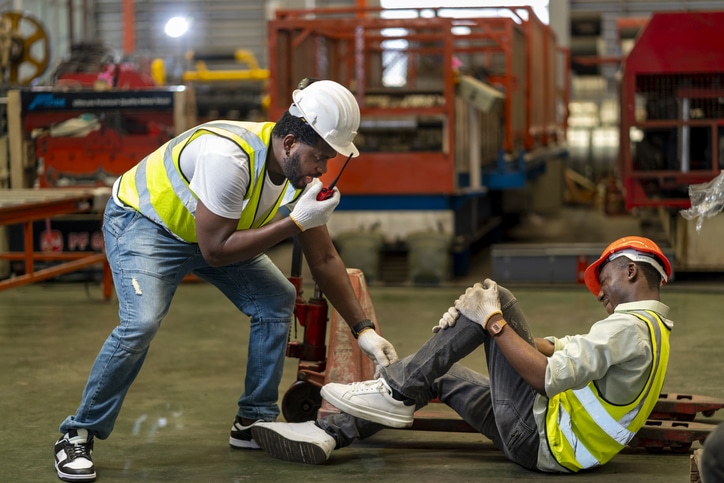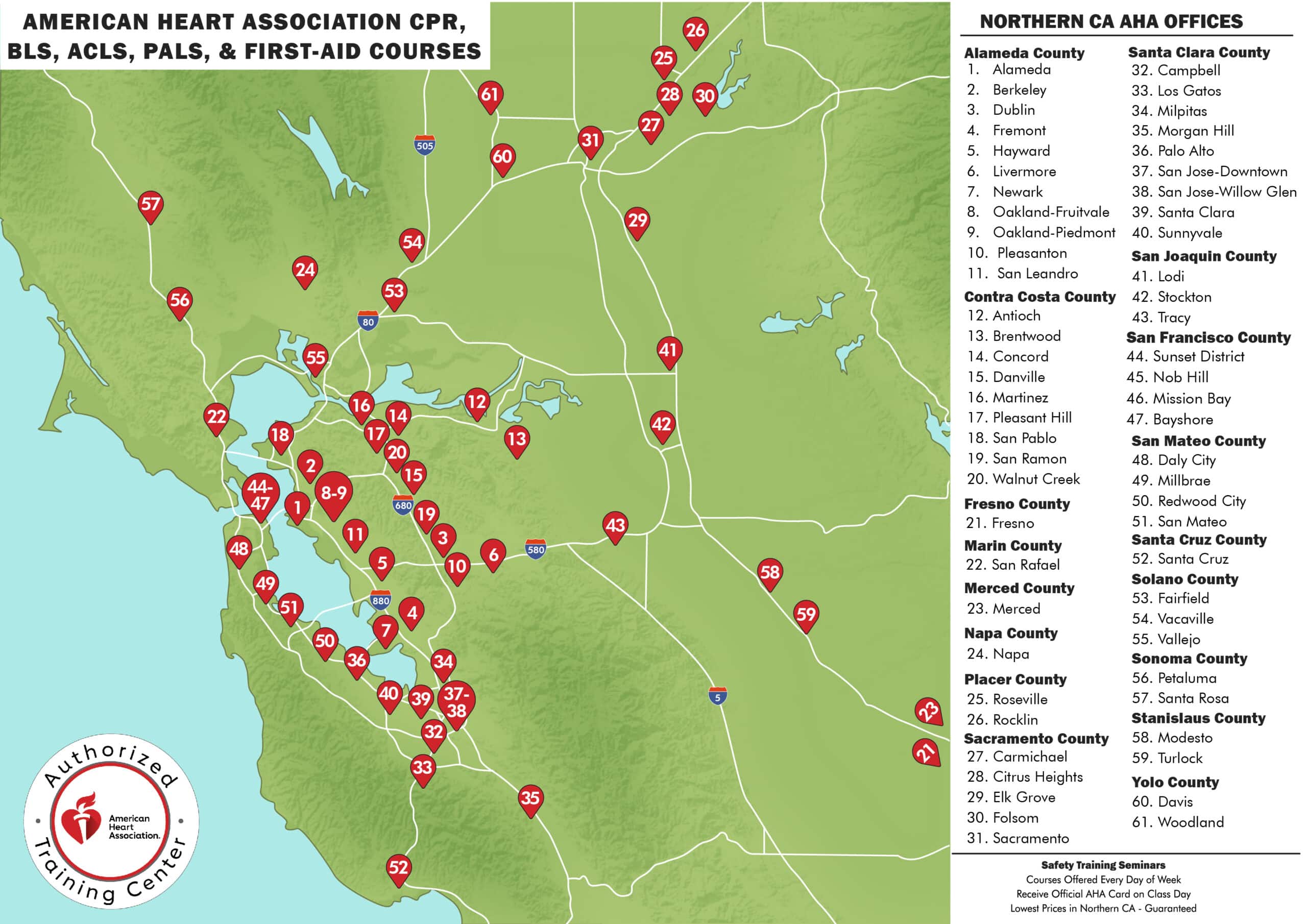
📌 Course Name: CPR, AED, and First-aid
🕒 Online Course Length: Approximately 2 hours (complete at home)
⏱ Skills Testing Duration: 30–50 minutes (conducted at one of our CPR testing sites)
🧐 What You’ll Learn: Gain hands-on training in CPR (all ages), AED use, bleeding control, burns, seizures, EpiPen administration, and more.
🏆 Certification: Receive your Safety Training Seminars certification card immediately after class.
💲 Price: $89
📅 Schedule and Availability: Classes are offered Monday through Sunday and are available throughout the day
📍 Locations: Courses offered in over 60 cities across Northern California
🔧 Optional Add-Ons:
💰 Low Price Guarantee: Found a lower rate? We’ll match it!
View Upcoming CPR & First Aid Courses in Concord (Clayton Rd)
View Upcoming CPR & First Aid Courses in Concord (Treat Blvd)
View Upcoming Courses in Concord, located at Clayton Rd or Treat Blvd

In Concord, California, being prepared for emergencies is a critical component of community safety. CPR & First-Aid certification classes provide individuals with the knowledge and skills necessary to respond effectively in emergency situations, potentially saving lives and preventing further injury. In this article, we delve into the significance of CPR & First-Aid certification classes in Concord, their accessibility, comprehensive training, and profound impact on community well-being.
CPR & First-Aid certification is essential for individuals across various professions and walks of life. These certifications empower individuals to take immediate action in medical emergencies, such as cardiac arrest, choking, severe bleeding, and other life-threatening situations. By learning how to perform CPR, administer first aid, and use automated external defibrillators (AEDs), certified individuals can significantly increase the chances of survival and reduce the risk of long-term complications for those in need.
CPR & First-Aid certification classes in Concord are designed to be accessible to individuals from all backgrounds and professions. These classes are typically offered at various times and locations throughout the city, accommodating the diverse schedules of participants. Many organizations and institutions, including hospitals, schools, community centers, and businesses, host CPR & First-Aid certification classes for their employees and community members.
In addition to traditional classroom-based courses, online CPR & First-Aid certification options provide flexibility and convenience for individuals to complete the training at their own pace. These online courses cover the same curriculum as traditional classes, including CPR techniques, first-aid procedures, AED use, and emergency response protocols, ensuring that participants receive comprehensive training regardless of the format.
CPR & First-Aid certification classes in Concord adhere to a comprehensive curriculum developed by organizations such as the American Heart Association (AHA) and the American Red Cross. Participants learn essential lifesaving skills, including:
Instructors, often certified healthcare professionals with specialized training in CPR and first aid, facilitate engaging and interactive training sessions. Participants have the opportunity to practice CPR and first-aid skills on manikins and simulation equipment, receiving personalized feedback and guidance from instructors. This hands-on approach ensures that participants develop the skills and confidence to respond effectively to medical emergencies in real-life situations.
CPR & First-Aid certification classes empower individuals with the knowledge and skills to be proactive in medical emergencies, rather than feeling helpless or unsure of what to do. By learning how to perform CPR, administer first aid, and use AEDs, certified individuals become valuable assets in their communities, capable of making a difference when every second counts.
These classes are particularly valuable for:
Upon successful completion of CPR & First-Aid certification classes, participants receive certification, typically valid for two years. Certification demonstrates that individuals have completed the required training and are competent to provide CPR and first aid in emergency situations.
To maintain certification, individuals are encouraged to undergo periodic recertification, typically every two years. Recertification courses provide an opportunity for participants to review and refresh their CPR & First-Aid knowledge and skills, learn about any updates or changes in guidelines, and demonstrate proficiency in emergency response techniques.
In Concord, CPR & First-Aid certification classes play a crucial role in enhancing community safety and well-being. By equipping individuals with life-saving skills and knowledge, these classes empower participants to respond effectively to medical emergencies and potentially save lives. Whether in the workplace, schools, healthcare settings, or everyday life, CPR & First-Aid certified individuals are invaluable assets in ensuring prompt and effective emergency response within the community.
With accessible and comprehensive CPR & First-Aid certification options available in Concord, individuals have the opportunity to acquire life-saving skills and make a positive impact in their communities. By investing in CPR & First-Aid education and certification, residents of Concord demonstrate their commitment to promoting safety, health, and resilience within their community.
Who should attend CPR & First-Aid certification classes in Concord?
CPR & First-Aid certification classes are suitable for anyone who wants to learn life-saving skills, including parents, teachers, caregivers, healthcare professionals, and members of the general public.
How long does a CPR & First-Aid certification course typically last?
CPR & First-Aid certification courses usually span over one to two days, depending on the training provider. The course includes a combination of classroom instruction, skills practice, and hands-on demonstrations.
Is there a renewal requirement for CPR & First-Aid certification?
Yes, CPR & First-Aid certifications are typically valid for two years, after which individuals are required to undergo renewal courses to maintain their certification. Renewal courses often include updates on guidelines and practice of skills.
Safety Training Seminars CPR
5167 Clayton Road, Suite G, Concord, CA 94521
(925) 691-9780